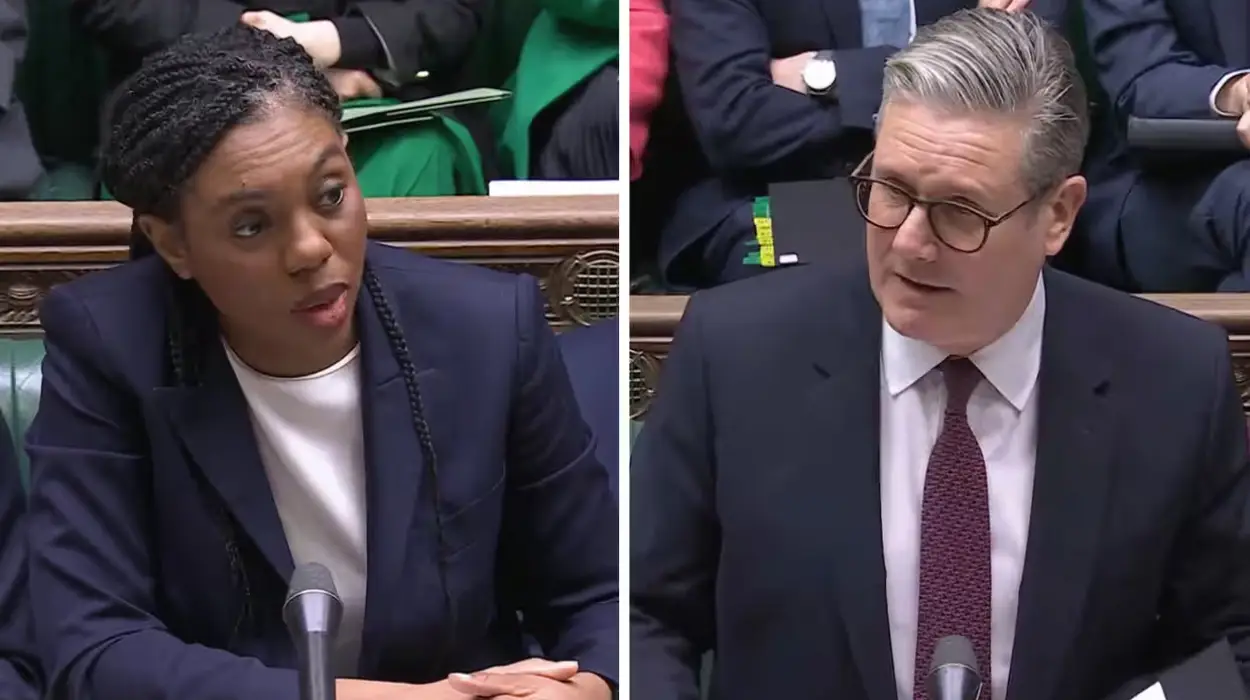UK (Parliament Politics Magazine) – The British government faces backlash as new rules block small boat refugees from citizenship, with critics saying it harms integration and contradicts national values.
Charities and Labour MPs condemn Sir Keir‘s administration over strict rules, making it impossible for small boat refugees to gain UK nationality.
What did the Labour MP and ex-Green leader say about the UK’s new citizenship policy?
Stella Creasy, a Labour MP, slammed the policy, arguing it “can’t be right” and would push refugees into a “forever second-class status” and exclude them from “our society.”
Meanwhile, former Green Party leader Caroline Lucas also condemned the move, warning that
“such performative cruelty won’t see off Reform – it’s more likely to strengthen them.”
What did the shadow home secretary say about the new migration policy?
Chris Philp, the shadow home secretary, criticized the bill, arguing that Conservatives opposed it because it eliminates Section 32 of the Illegal Migration Act 2023, which blocks citizenship for illegal entrants.
He stated,
“By repealing that section, the bill will create a pathway to citizenship for people who entered the country illegally, and I think that is unconscionable.”
How did the Refugee Council react to the latest migration policy change?
The Refugee Council has criticized the latest policy shift, stating it lacks rationale and creates unnecessary hurdles for refugee integration.
In a statement, they said,
“This change flies in the face of reason. The British public wants refugees who have been given safety in our country to integrate into and contribute to their new communities, so it makes no sense for the government to erect more barriers.”
Arguing that citizenship enables refugees to give back to society as professionals, the council urged officials to reverse measures that block their path to citizenship.
What did the immigration barrister say about the UK’s citizenship policy for small boat refugees?
Colin Yeo, a leading lawyer, argues that the move breaches global legal standards.
Mr Yeo stated that the policy seems inconsistent with international law, raising concerns over its compliance with the Refugee Convention. He further cited Article 31, which says,
“The Contracting States shall not penalize refugees for illegal entry if they come directly from danger, report promptly, and show valid reasons.”
He argues the policy violates the convention, which asks states to assist refugee assimilation and naturalization, adding that the UK is bound by it but not legally enforceable.
What new restrictions has the Home Office added to citizenship rules?
The Home Office policy update was revealed in a Free Movement website post, highlighting changes to the Good Character guidance for immigration officials.
Two essential sections have been added to the latest policy update, which includes:
- Any person applying for citizenship from 10 February 2025, who previously entered the UK illegally will normally be refused, regardless of the time that has passed since the illegal entry took place.
- A person who applies for citizenship from 10 February 2025 who has previously arrived without a required valid entry clearance or electronic travel authorisation, having made a dangerous journey will normally be refused citizenship.
The definition of a dangerous journey now includes travel by small boat or hidden in a vehicle but excludes those arriving via commercial airlines.
How did the Home Secretary respond to the new citizenship policy changes?
Yvette Cooper, the home secretary, claimed that the government has tightened rules to block small boat arrivals from securing citizenship.
A representative from the home office stated,
“There are already rules that can prevent those arriving illegally from gaining citizenship.”
How do Labour voters and the British public view the small boat refugee citizenship policy?
A recent survey by British Future revealed that a majority of Labour voters and a significant portion of the British public believe small boat arrivals who are granted asylum should be eligible for citizenship. The poll comes amid the Tory party’s policy shift and the Home Office’s revised changes.
The survey findings show that 44% of the public support granting citizenship to refugees after six years, regardless of their arrival method, while 33% disagree. Labour (62%) and Lib Dem (60%) voters favour the policy, whereas Conservatives are divided, with 40% in favour and 42% against. However, Reform UK voters show the strongest opposition, with 68% against it.

